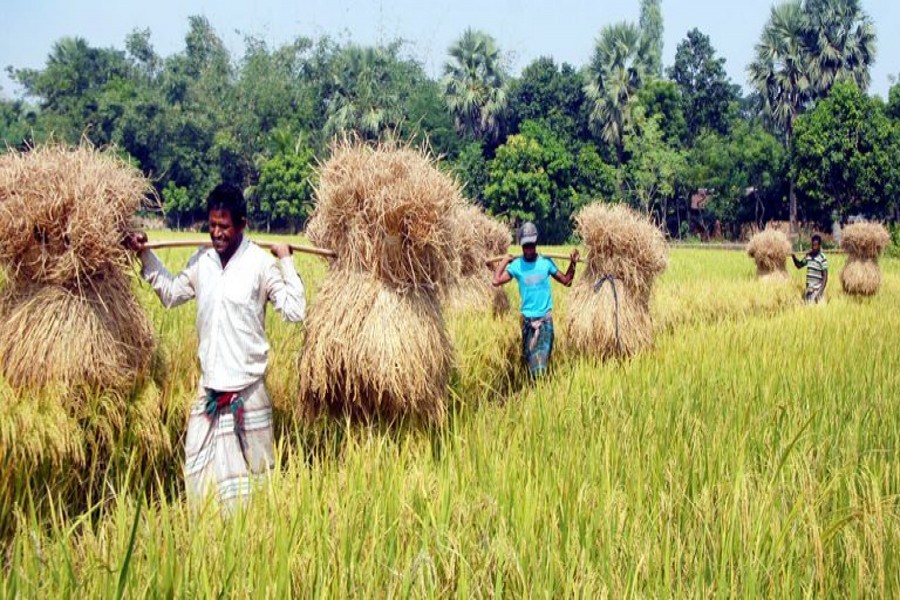Record paddy -- Boro and Aman -- yields should have been an occasion for unalloyed celebration but it isn't quite so. While it brings a measure of joy no doubt, there is an underlying cause also for anxiety not only for farmers but also for policymakers. Precipitous fall of paddy prices is the reason for the worry. Once a food deficit country, it has to its credit producing more than 20 million tonnes of Boro paddy for the first time in its history. The country has not merely achieved this mark in the fiscal year 2018-19, its Aman yield has also reached a record output of 14.3 million tonnes in the year. Registering a more than 3.0 per cent growth rate, the total paddy yield, according to a report carried in this newspaper, reached 37.3 million tonnes. Yet paradoxically the achievement in agriculture could not benefit the farmers to the desired extent.
Now the question is, if this was inevitable. For two consecutive years, paddy has registered record yield after a setback suffered on account of flash floods in the Haor area in 2017. It was not exactly a natural calamity that caused damage to the near-ripe paddy; rather it was triggered by absence of timely repair work of flood protection dam to resist water onrush. The unforeseen loss of the staple crop then prompted the authorities to import rice on an emergency basis. What is to be noted here is that if paddy output is upset somehow either on account of natural calamity or undesirable intervention, this exiguous deltaic land finds itself in the soup. Food safety can easily get jeopardised if either of the two main crops - Boro and Aman - suffers.
It is quite baffling that the policymakers are yet to find a solution to the paradox of yield and price. So enraged were the farmers two years ago that some of them made a bonfire of paddy they brought to market for sale. When outcries of farmers over low price - lower than the production cost - of paddy gained in volumes, the authorities could not help taking note of it. But they were at a loss over the action to be taken. Allegations of irregularities in procurement of paddy marred the move. A post-haste decision of exporting rice also failed to raise price of paddy at the growers' level.
It is the middlemen and millers who actually derive the maximum benefit from moves that are considered a late damage-controlling response rather than a predetermined plan. The fact is that the huge gap between the prices at the consumer level and at the growers' level goes unattended. Middlemen and millers manipulate and control the staple market to their own advantage. If the several layers of middlemen can be driven out and millers' role well defined, both farmers and consumers will enjoy its benefit. Price of paddy or other produces will go up at the field level and at the same time consumers will purchase foods cheaper than they presently do. The authorities can create a pool of goods-carrying vehicles to bypass the middlemen and this will to a large extent address the paradox.


